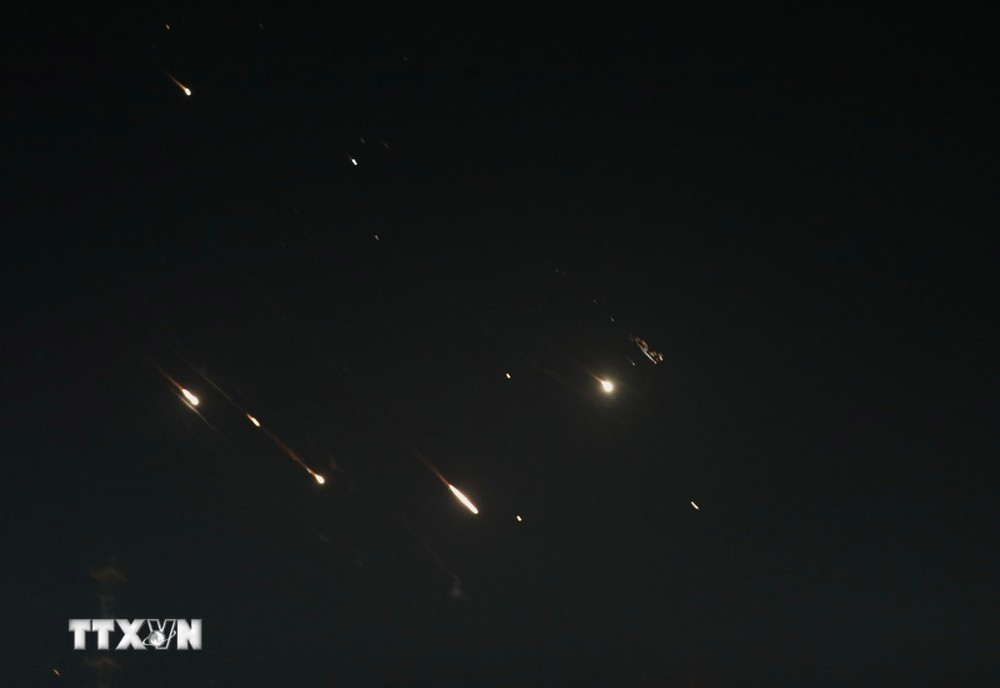European Council President Charles Michel said the sanctions would target Iranian companies involved in the production of drones and missiles.

On April 17, European Union (EU) leaders agreed to strengthen sanctions against Iran following its missile and drone attack on Israel on the night of April 13.
The decision was made at the EU Summit held in Brussels, Belgium, on April 17-18.
Speaking at the conference, European Council President Charles Michel said the sanctions would target Iranian companies involved in the production of drones and missiles.
EU leaders also called on all parties to exercise maximum restraint in any action that could increase tensions in the region.
German Chancellor Olaf Scholz stressed that it was most important that Israel should not launch a large-scale retaliatory attack.
On the same day, finance ministers and central bank governors of the Group of Seven (G7) industrialized nations pledged to ensure close cooperation in sanctions against Iran.
The ministers met on the sidelines of the 2024 Spring Meetings of the International Monetary Fund (IMF) and the World Bank (WB) in Washington.
The G7 will "ensure close coordination through all measures to reduce Iran's ability to acquire, produce or transfer weapons that support destabilizing activities in the region," the statement said.
On the night of April 13, Iran launched a missile and drone attack in response to the attack on the Iranian Embassy in Syria on April 1, which Tehran blamed on Israel. Iran stated that its attack was within the framework of international law, citing Article 51 of the UN Charter, and affirmed that it had no intention of continuing this activity and did not seek to escalate tensions in the region.
On April 17, Iranian President Ebrahim Raisi warned of a "massive response" if Israel takes even the smallest retaliatory action.
Meanwhile, on the same day, Israeli Prime Minister Benjamin Netanyahu said the country would make its own decisions about its security and would do "whatever is necessary to protect the country."
The international community is currently calling on all parties to exercise restraint and avoid escalating tensions in the region. On April 17, Jordanian Foreign Minister Ayman Safadi warned that any Israeli retaliation could plunge the entire region into a devastating war.
In an interview with Jordanian media, he said Jordan is working with other countries to prevent the risk of escalating tensions that could have far-reaching consequences for regional security and stability.
Foreign Minister Safadi stressed that Jordan will act resolutely in case of an outbreak of tension, affirming that it will not allow parties to turn Jordan into a battlefield.
Geographically bordering Israel and the West Bank, Jordan has intercepted the majority of Iranian missiles and drones flying through its airspace toward Jerusalem and targets in Israel.
TB (according to VNA)